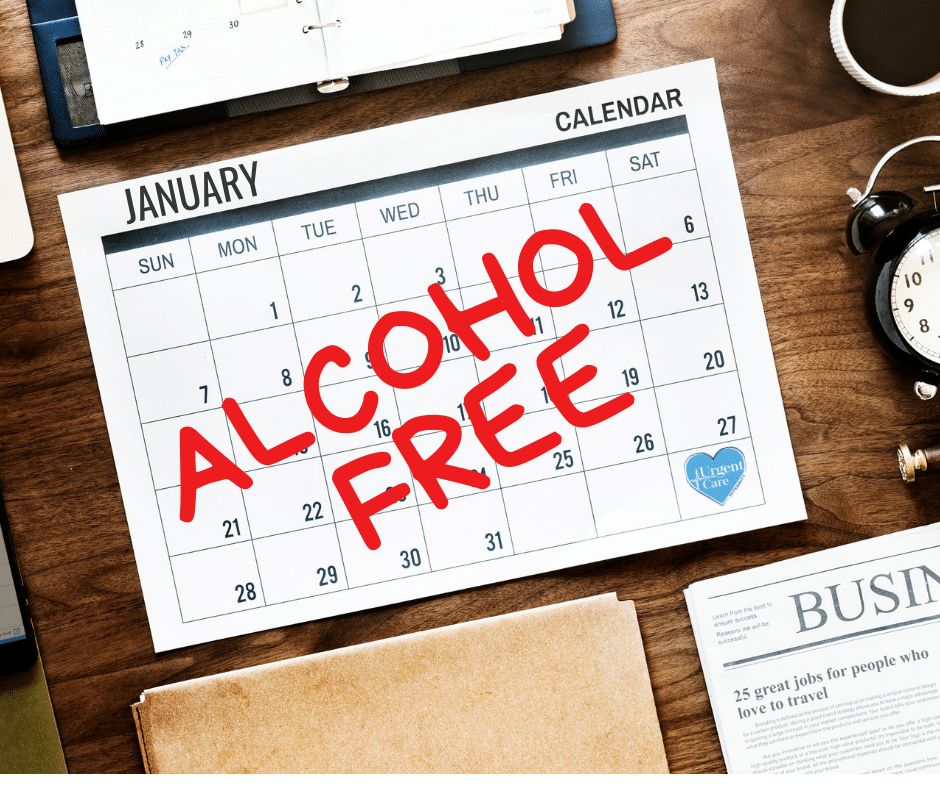Yes, January is already in full swing, but it’s not too late to end the month “dry” – as in, without alcohol. Now that New Years is behind us, you may be even more motivated to try this approach post-celebrations once you’ve learned about the health benefits.
“Dry January” has been widely practiced in the United Kingdom. However, the public health campaign which urges people to abstain from consumption of alcohol during the month of January has gained in its popularity in recent years in the United States. The term “Dry January” was registered as a trademark by the charity Alcohol Concern in mid-2014 following the first ever “Dry January” campaign that occurred in January 2013. For their January 2015 campaign, Alcohol Concern partnered with Public Health England for the first time.
If you’re feeling skeptical that just one month of abstinence can have measurable health benefits, there seems to be evidence to support this. The initially very small study that was conducted in the UK that led rise to the annual campaign, was conducted by a group of 14 “healthy” employees of the New Scientist magazine. A few highlights from this study and other subsequent research include:
- 15-20% reduction in liver fat and improvement in liver function
- An average decrease of 16% in blood alcohol levels
- Improved blood pressure
- Improved levels of concentration
- Better sleep and less fatigue AND
- An average loss of four pounds over the month
While the evidence is clearly measurable, it may not be all that surprising given the fact that a decrease in alcohol also means a decrease in calories consumed. And, while the immediate health benefits can be validated, perhaps an even greater benefit comes six months later when most participants report that they continued to drink fewer days per week and that they consumed fewer drinks per sitting. (However, a small group of the participants experienced a “rebound,” where they consumed more than they had before the challenge.) If those reasons haven’t convinced you, 88% of participants in a 2018 study reported saving money.
All that being said, experts argue that there may be some cons to balance the pros. Experts in addiction maintain that regular breaks from drinking have more long-term benefits than “binge breaks.” And, for individuals who truly have an alcohol addiction, abrupt withdrawal can be life-threatening. George Koob, director of the National Institute on Alcohol Abuse and Alcoholism advises, “If you’re a heavy drinker, you want to get help for detoxification because it really can kill you.”
Whatever your views on drinking alcohol, Integrity Urgent Care is here to meet all your healthcare needs. Remember, no appointment is ever necessary at any of our convenient locations, and we’re here to serve you every day from 8 am to 8 pm. Happy New Year!
Resources:
Gutman A. Going dry: the benefits of a month without booze. NPR The Salt [online]. 6 Jan 2015 [accessed 8 Jan 2019]. https://www.npr.org/sections/thesalt/2015/01/06/372088383/going-dry-the-benefits-of-a-month-without-booze?
Reddy S. The dry January effect. The Wall Street Journal [online]. 1 Jan 2019 [accessed 8 Jan 2019]. https://www.wsj.com/articles/the-dry-january-effect-11546351200
Settembre J. Doing a ‘Dry January’ can help you save money, lose weight – and even quit smoking. MarketWatch [online]. 31 Dec 2018 [accessed 10 Jan 2018]. https://www.marketwatch.com/story/how-to-make-dry-january-a-year-long-commitment-2018-02-04
Wikipedia. Dry January. Last edited 5 Jan 2019 [accessed 8 Jan 2019]. https://en.wikipedia.org/wiki/Dry_January



